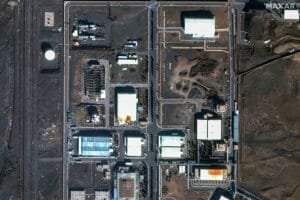Washington, United States – In what has been described as the most serious move since the outbreak of the Ukraine war, US President Donald Trump announced a comprehensive package of sanctions targeting the Russian energy sector. The confrontation has shifted from the battlefield to the global oil and gas market. This move threatens to trigger an unprecedented energy crisis in Europe and the world.
The sanctions announced by the White House included a freeze on commercial transactions with major Russian oil and gas companies. They also banned the export of equipment and technology used in energy extraction. In addition, substantial financial assets of officials and businessmen linked to the sector were frozen.
Trump emphasized that the goal of this move is to “dry up the sources of funding for Russia’s war in Ukraine.” He emphasized that Moscow will not be able to continue the war while its “economy is bleeding under the weight of sanctions.”
Moscow’s response
But Moscow, for its part, was quick to respond. The Kremlin described the sanctions as a “declaration of economic war” and threatened countermeasures targeting vital supplies to Western markets. This comes at a time when the European Union relies on Russian energy for more than 30% of its gas needs.
The Russian government spokesman said that his country would take “harsh and measured” measures to protect its interests. He also indicated that Washington was “playing with fire” in a region of extreme sensitivity for the global economy.
Reactions in Europe were mixed. While some capitals welcomed Trump’s move, deeming it “necessary to curb Russian aggression,” other countries expressed concerns that the sanctions would lead to skyrocketing energy prices. This could exacerbate inflation, which strains the budgets of households and businesses alike.
Analysts believe that these sanctions represent a qualitative shift in Washington’s strategy, shifting from military support for Ukraine to targeting the heart of the Russian economy. They are seen as an attempt to create long-term financial paralysis in Moscow.
But they also warned that this escalation could backfire on the United States and its allies, especially given the potential disruption to global energy supplies. A return to record highs of more than $120 a barrel of oil could cause problems.
As the economic war intensifies, questions arise about the future of the global energy market. The ability of major powers to balance geopolitical conflict with energy security requirements is of great importance.
Will Washington succeed in curbing Moscow without Europe paying the price? Or is the war in Ukraine entering a new chapter… titled: Gas instead of bullets, oil instead of tanks?

















